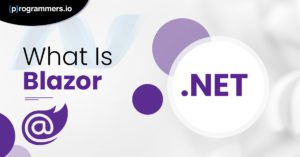Functional programming (FP) has become a hot topic in the world of software development. This programming paradigm, which emphasizes immutability, first-class functions, and expressions over statements, offers a fresh perspective on solving problems.
In this article, we’ll look at the core technologies driving functional programming, explore key concepts, and understand why FP matters in today’s development landscape.
Key Technologies in Functional Programming
Several languages have been pivotal in advancing functional programming, each bringing unique strengths to the table.
Scala:
Scala seamlessly blends object-oriented and functional programming, running on the Java Virtual Machine (JVM). Its concise syntax and powerful type system enhance developer productivity and code safety. Scala’s compatibility with Java libraries also makes it a practical choice for many enterprises.
Clojure:
As a modern dialect of Lisp, Clojure is designed for concurrency and emphasizes immutable data structures. Its dynamic nature and powerful macro system make it a favorite for data-intensive applications and real-time systems.
Haskell:
Known for its strong static type system and lazy evaluation, Haskell is a purely functional language. It excels in academic and research settings but is also applied in industry projects. Haskell’s ability to handle complex computations efficiently makes it a robust tool for various applications.
F#:
Part of the .NET family, F# combines functional, imperative, and object-oriented programming. Its succinct syntax and powerful type inference make it an excellent choice for cross-platform applications. F# leverages the .NET ecosystem, providing a rich set of libraries and tools.
Elixir:
Running on the Erlang VM, Elixir is designed for building scalable and maintainable applications. Its support for concurrent programming is unparalleled, making it ideal for telecom and real-time systems. Elixir’s syntax and tooling are user-friendly, making it accessible to new developers.
Erlang:
Created for building robust, fault-tolerant systems, Erlang’s concurrency model is based on the actor model. It powers applications requiring high availability and resilience, such as messaging systems and telecommunication infrastructure.
Lisp:
As one of the oldest programming languages, Lisp introduced many concepts foundational to functional programming. Its macro system allows developers to create powerful abstractions, making it a versatile tool for various applications.
JavaScript and Python:
Both languages support functional programming principles. JavaScript’s array methods like map and reduce, and Python’s list comprehensions and higher-order functions make them versatile choices for functional programming. They enable developers to write clean, modular code within these popular languages.
Core Concepts in Functional Programming
Understanding the fundamental concepts of functional programming is crucial for leveraging its full potential.
Lazy Evaluation:
This technique delays the evaluation of expressions until their values are needed, improving efficiency. Haskell is renowned for its lazy evaluation, which allows the creation of infinite data structures and improves performance by avoiding unnecessary computations. Lazy evaluation can lead to significant performance gains in the right contexts.
Pattern Matching:
Found in languages like Scala and Elixir, pattern matching simplifies the code by allowing direct deconstruction of data structures. It enhances readability and maintainability, making complex data manipulations more intuitive. Pattern matching can be used to concisely express conditional logic and data extraction.
Algebraic Data Types (ADTs):
ADTs, including sum and product types, are foundational in Haskell and Scala. They provide a way to define composite types, improving type safety and expressiveness. ADTs help model data more accurately and concisely, making code easier to understand and maintain.
Type Systems:
Strong, static type systems, as seen in Haskell and F#, catch errors at compile time, leading to more robust code. These systems enforce rigorous type checking, reducing runtime errors and enhancing developer confidence. Type systems can significantly improve code quality and reliability.
Category Theory:
Often regarded as the mathematical backbone of functional programming, category theory provides a high-level framework for understanding and structuring code. Concepts like monads and functors, derived from category theory, offer powerful abstractions for managing side effects and data transformations. These abstractions enable developers to write more modular and reusable code.
Functional Programming for Concurrency:
Languages like Erlang and Elixir excel in handling concurrency. They use lightweight processes and message passing to build highly concurrent systems. Functional programming principles, such as immutability, naturally complement concurrent programming by avoiding state-related issues. This leads to more predictable and reliable concurrent systems.
Functional Programming for Parallelism:
Functional languages, with their emphasis on immutability and pure functions, are well-suited for parallelism. Haskell’s runtime system and parallel libraries enable efficient parallel computations, leveraging multicore processors effectively. Parallelism can lead to significant performance improvements in computationally intensive applications.
Functional Programming Libraries and Tools
To harness the full power of functional programming, several libraries and tools are at your disposal.
Libraries:
Popular libraries include Scala’s Cats and ZIO, Haskell’s Lens and QuickCheck, and JavaScript’s Ramda and Lodash. These libraries offer pre-built functionalities, making it easier to implement functional programming paradigms in your projects. They provide robust abstractions and utilities that simplify common tasks.
Reactive Programming:
Reactive programming extends functional programming principles to asynchronous data streams. Libraries like RxJS for JavaScript and Akka Streams for Scala enable building responsive, resilient, and elastic systems. Reactive programming is particularly useful for building applications that need to handle a high volume of events or data streams.
Why Functional Programming Matters
Adopting functional programming can lead to several benefits:
Improved Code Quality:
By emphasizing pure functions and immutability, functional programming reduces side effects, making code more predictable and easier to debug. Pure functions ensure that the same inputs always produce the same outputs, leading to more reliable code.
Enhanced Modularity:
Functional programming encourages breaking down problems into smaller, reusable functions, promoting code modularity and reuse. This leads to more maintainable and testable codebases, as each function can be developed and tested in isolation.
Concurrency and Parallelism:
Functional languages handle concurrent and parallel programming more naturally, leveraging immutable data structures and stateless computations. This reduces the complexity of writing and maintaining concurrent programs, leading to more robust and efficient systems.
Better Abstractions:
Functional programming offers powerful abstractions through higher-order functions, monads, and other constructs. These abstractions enable developers to write more expressive and concise code, making complex logic easier to understand and maintain.
Conclusion
Functional programming offers a robust framework for building scalable, maintainable, and efficient software. Whether you are using Scala, Haskell, Elixir, or JavaScript, incorporating functional programming principles can transform your approach to coding.
By integrating these concepts and tools, you can elevate your programming skills and tackle complex problems with greater ease and efficiency. Happy coding!




